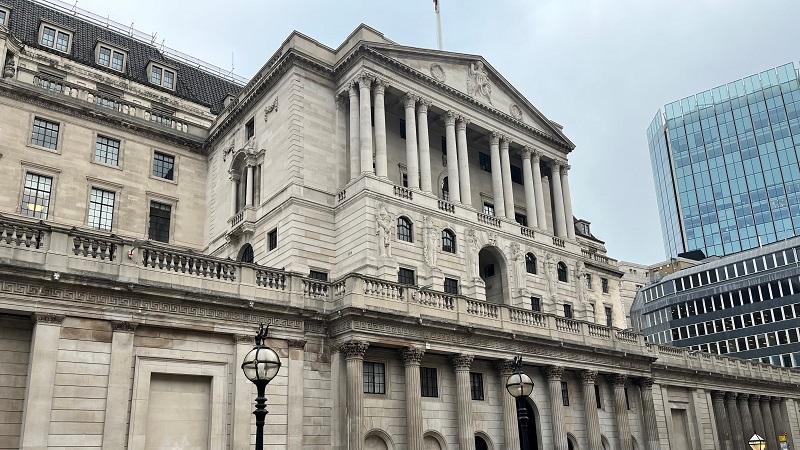The Bank of England has cut interest rates for the first time since March 2020, dropping the base rate 25 basis points to 5%.
In a decision that was described as too close to call by industry commentators, the Monetary Policy Committee voted 5-4 in favour of a cut.
The move sees the base rate finally climb down from a 16-year high of 5.25%.
Hetal Mehta, head of economic research at St. James’s Place, said the cut was clearly not a straightforward policy move, as evidenced both by the voting split and the finely balanced nature for a number of MPC members.
With the Bank of England expecting inflation to nudge up again before coming back down, Mehta said: “The pace of cuts will become an increasing part of the debate, but big and/or back-to-back moves would be reserved for an economic shock. The overall tone is in line with the policy normalisation we have been anticipating.”
See also: IA: UK investment management industry reaches £9.1trn in AUM for 2023
‘A tentative start’
Reacting to the decision, David Katimbo-Mugwanya, head of fixed income, EdenTree Investment Management, said the cut represented “a tentative start”.
“With its inaugural rate cut of the cycle, the Bank of England (BoE) has joined other major central banks including the Bank of Canada and the European Central Bank in making a tentative start to paring its restrictive stance on monetary policy,” he said.
“Shorter-dated bond yields, deemed as more sensitive to benchmark interest rates, have recently declined faster than those on longer-duration counterparts further out on the curve, indicating that the long-awaited shift came as no surprise to market participants.
“Despite having witnessed further falls on goods price inflation over the last year, policymakers remain particularly alert to the trajectory of service price changes and wage pressures. BoE policymakers are therefore more likely to err on the side of caution vis-à-vis guidance rather than risk de-anchoring consumer prices expectations by cutting hastily, ultimately keeping rates higher for longer.”
Meanwhile, AIC chief executive Richard Stone described the decision as “modest but symbolic”.
On what interest rate cuts could mean for investment trusts, he added: “Lower interest rates could see investors looking beyond fixed income and towards alternative asset classes such as infrastructure, renewable energy and property, which have the potential to pay attractive levels of income.
“A lower Bank of England base rate could also boost income-paying investment trusts such as our dividend heroes, which have delivered consistently rising dividends for periods of at least 20 years.”
See also: July fund performance: Small caps rebound in marathon month of politics










